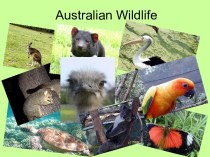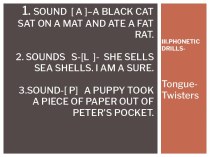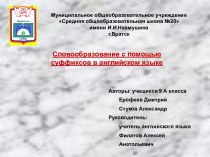- Главная
- Разное
- Бизнес и предпринимательство
- Образование
- Развлечения
- Государство
- Спорт
- Графика
- Культурология
- Еда и кулинария
- Лингвистика
- Религиоведение
- Черчение
- Физкультура
- ИЗО
- Психология
- Социология
- Английский язык
- Астрономия
- Алгебра
- Биология
- География
- Геометрия
- Детские презентации
- Информатика
- История
- Литература
- Маркетинг
- Математика
- Медицина
- Менеджмент
- Музыка
- МХК
- Немецкий язык
- ОБЖ
- Обществознание
- Окружающий мир
- Педагогика
- Русский язык
- Технология
- Физика
- Философия
- Химия
- Шаблоны, картинки для презентаций
- Экология
- Экономика
- Юриспруденция
Что такое findslide.org?
FindSlide.org - это сайт презентаций, докладов, шаблонов в формате PowerPoint.
Обратная связь
Email: Нажмите что бы посмотреть
Презентация на тему Животные нашего села
Содержание
- 2. In our village there are many
- 3. Cows A cow is a female domestic
- 5. Goats The domestic goat (lat. Capra hircus)
- 6. SheepsThe domestic sheep (Latin Ovis aries) is
- 8. Chickens Chicken, or domestic chicken (lat. Gallus
- 10. Ducks Duck is a representative of birds
- 12. GeeseGeese (Latin Anser) - a kind of
- 14. TurkeysHome turkey (Meleagris gallopavo Linnaeus, 1758, the
- 16. HorsesHorses (Latin Equus) are the only modern
- 18. DogsA dog (Latin Canis lupus familiaris) is
- 20. CatsA cat, or domestic cat (Latin Félis
- 22. PigsPigs (Latin Suidae) are a family of
- 24. RabbitsRabbits are a common name for several
- 26. Скачать презентацию
- 27. Похожие презентации
In our village there are many animals. The vastness of which is contained in the form of domestic animals. Animals of our village include: cows, goats, sheep, chickens, ducks, geese, turkeys, horses, dogs, cats, pigs,
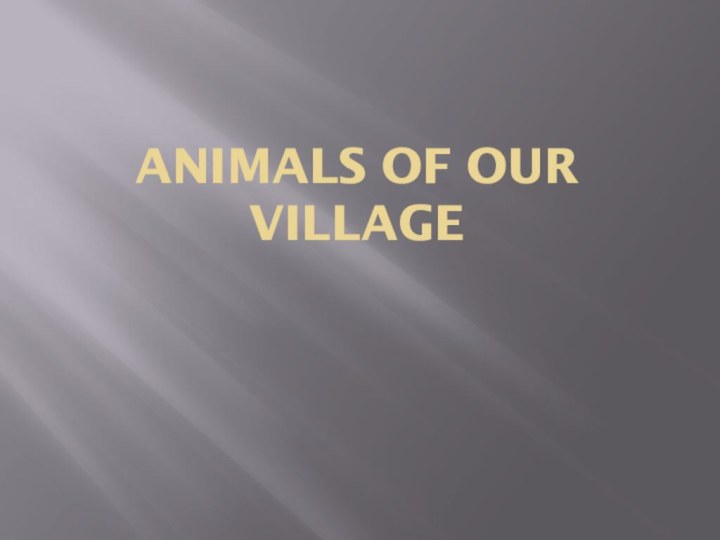


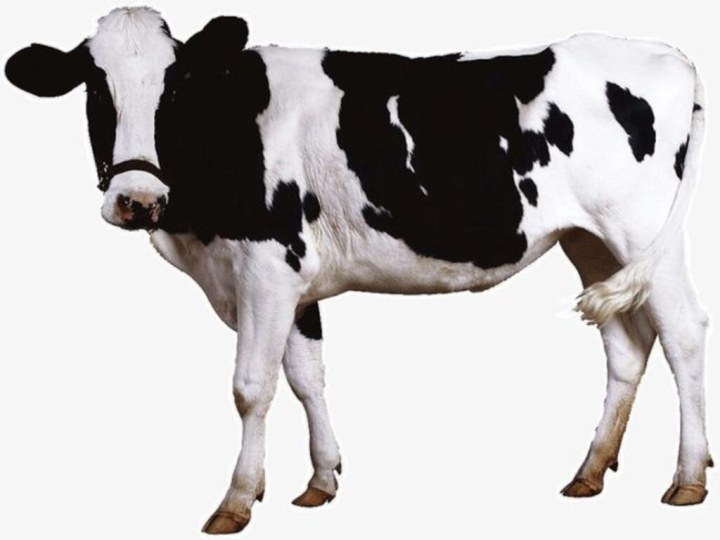
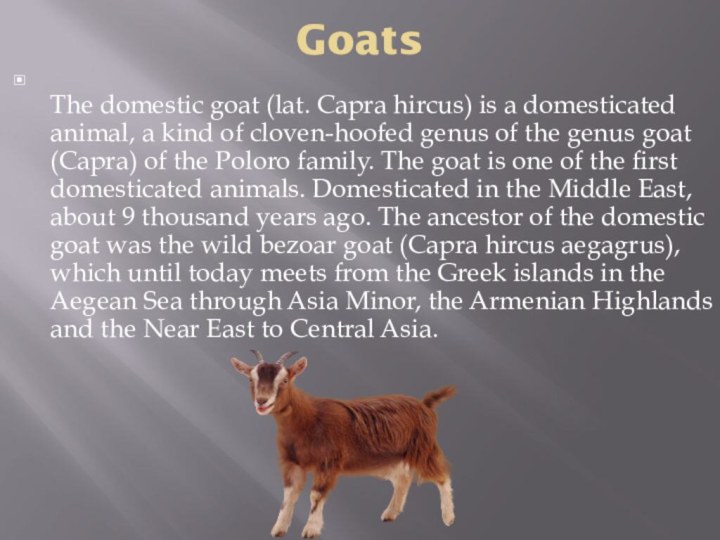
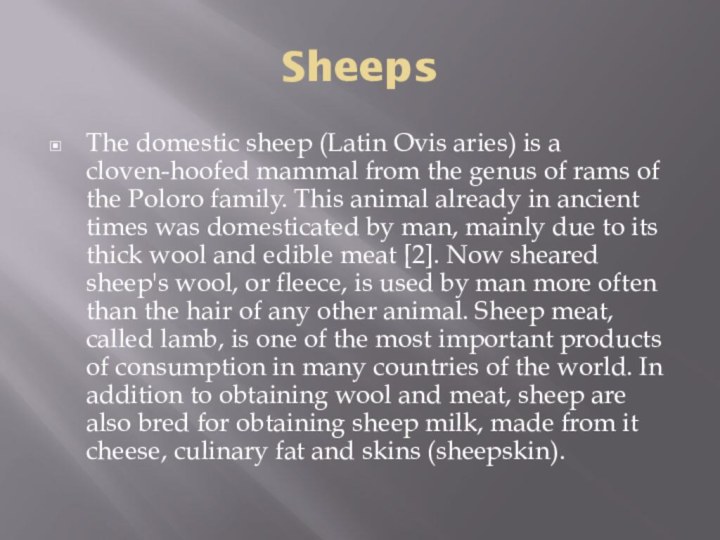
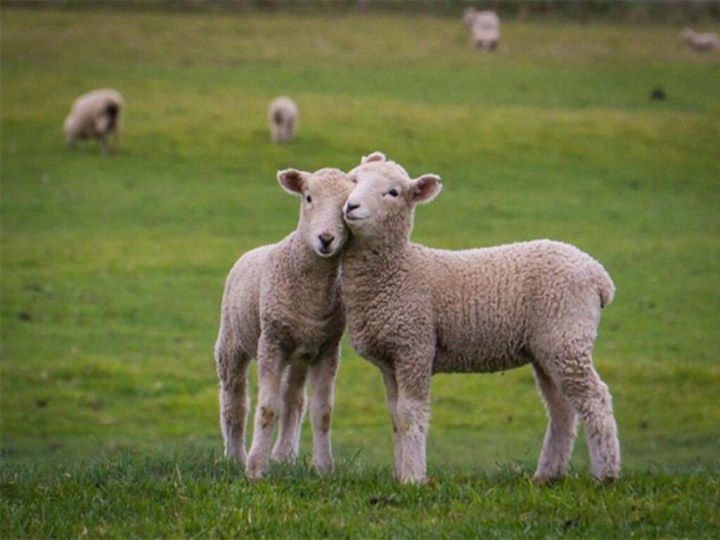


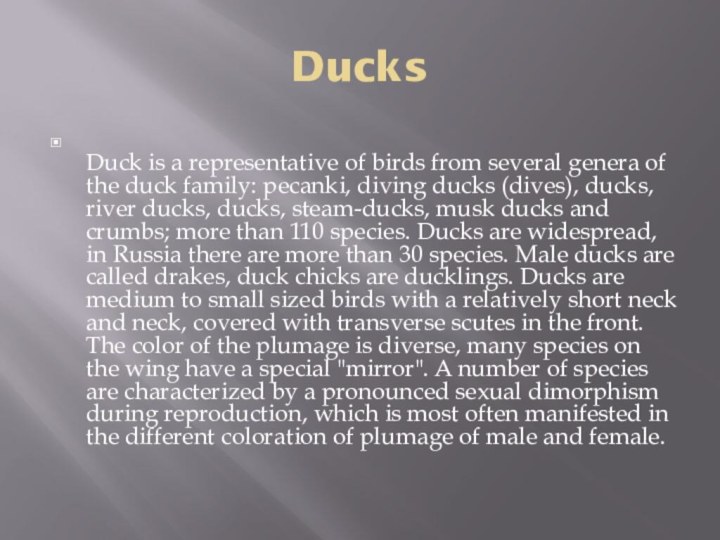
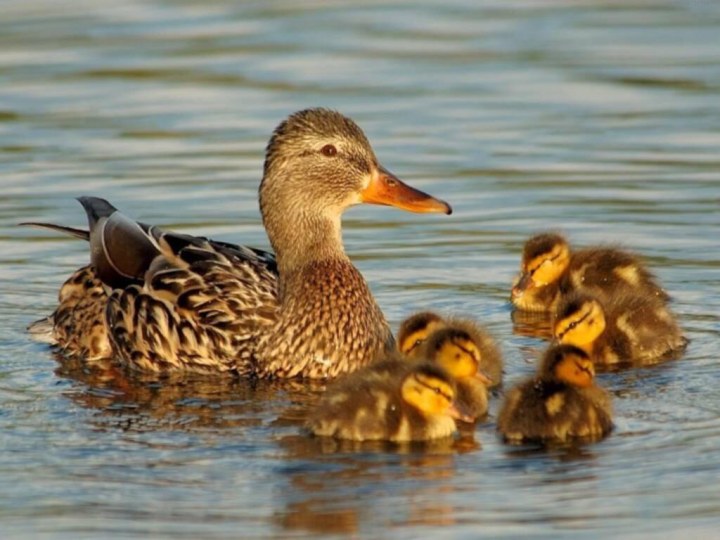
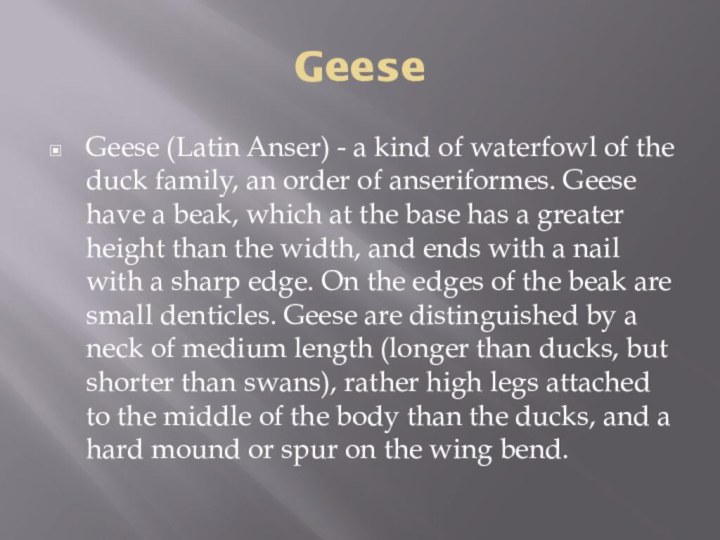

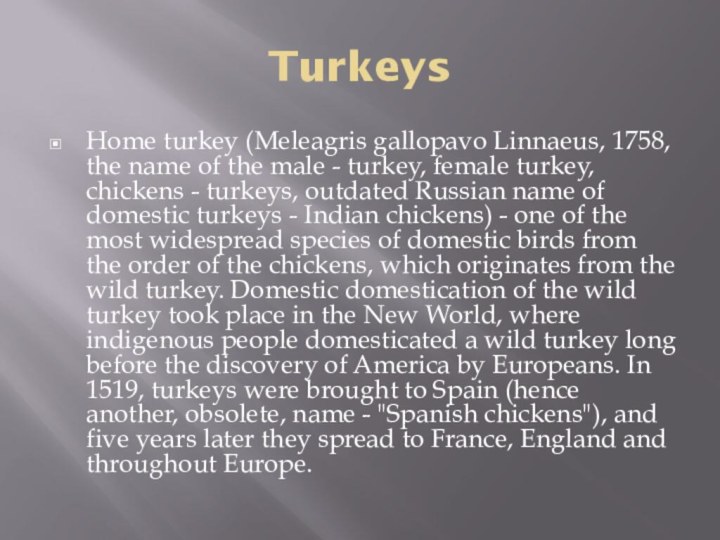
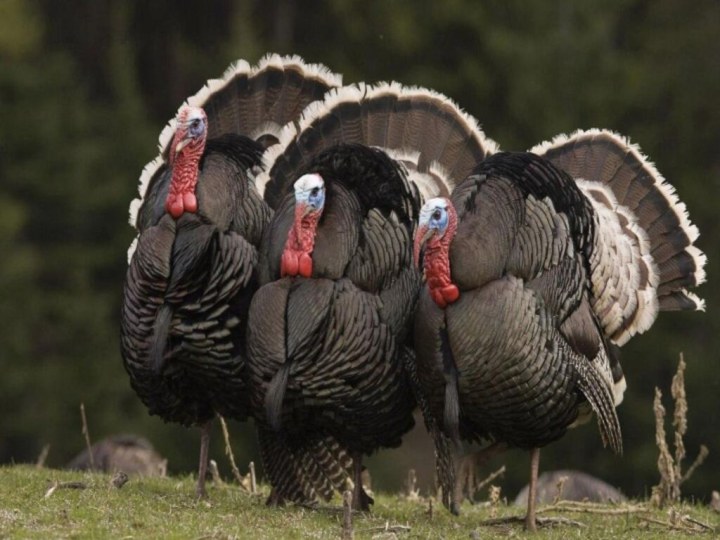
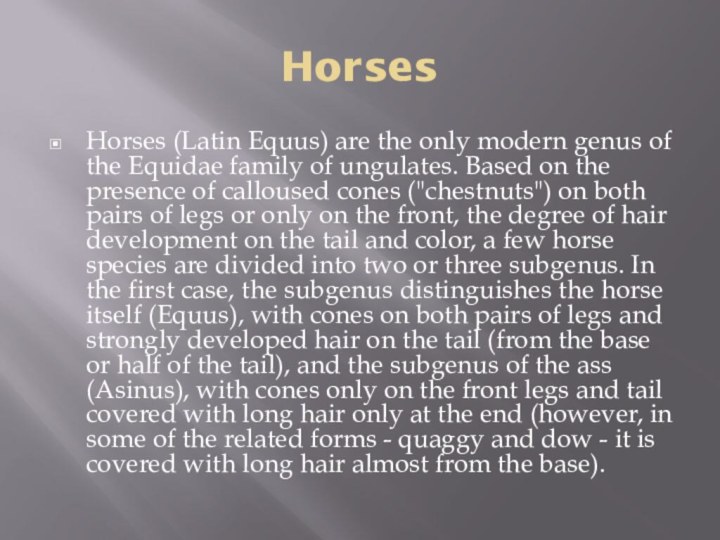



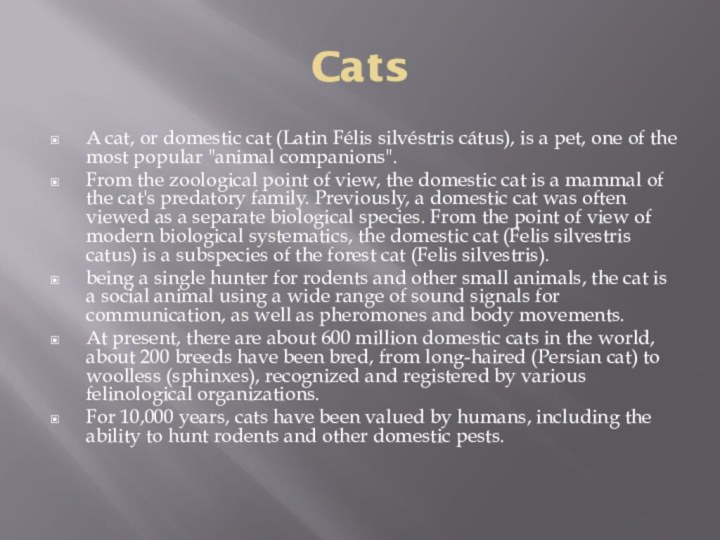
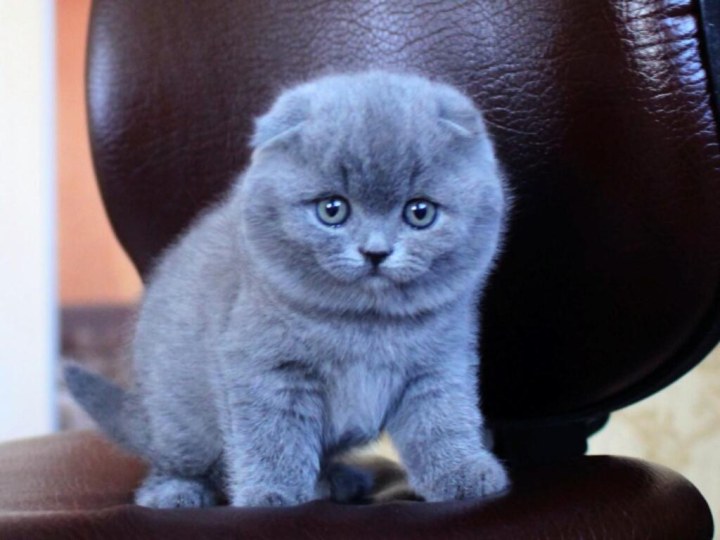
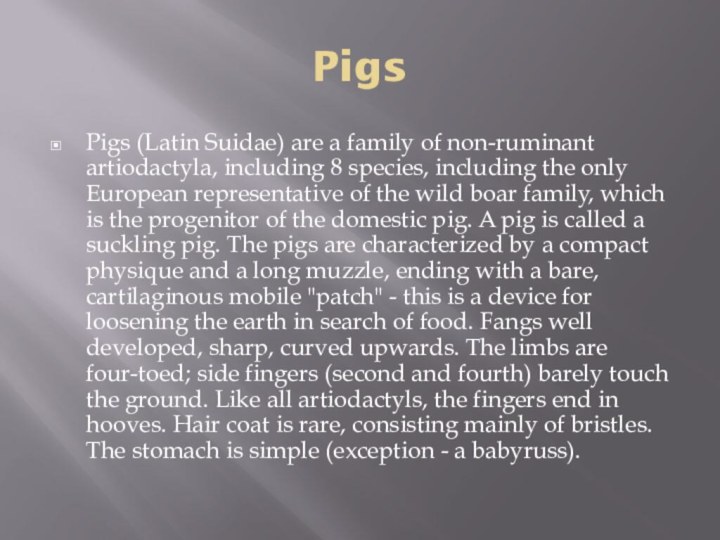
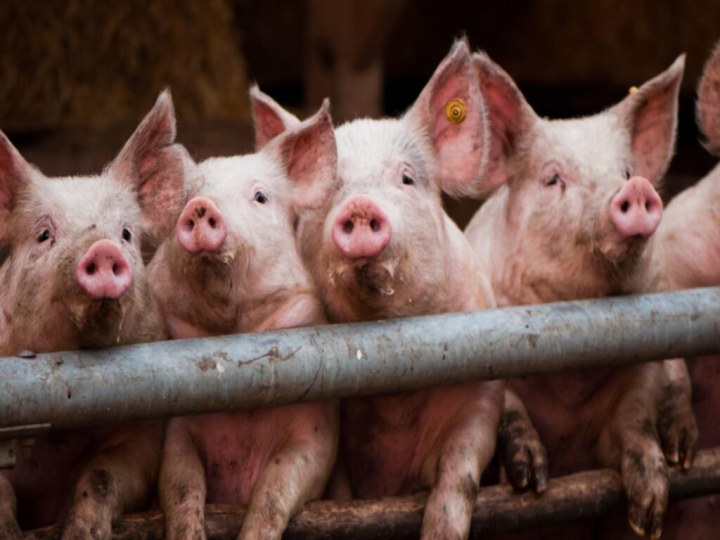
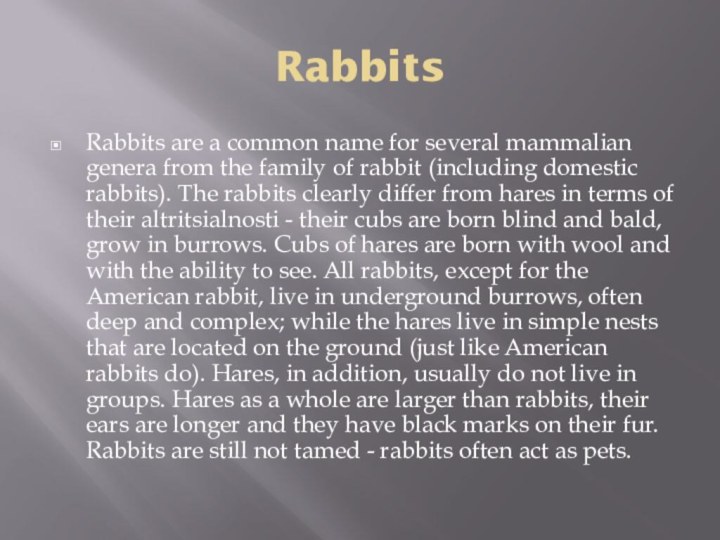
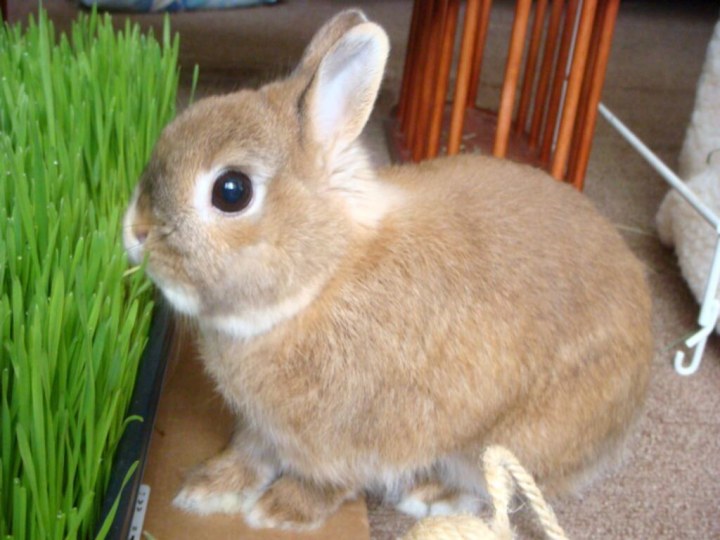

Слайд 3
Cows
A cow is a female domestic bull (Latin
Bos taurus taurus), a domesticated subspecies of a wild
bull (Bos taurus), a cloven-hoofed ruminant animal of the Bovidae family. It is bred for obtaining meat, milk and skin. Male species are called bulls, young - calves, castrated males - oxen. Young (before the first pregnancy) females called calves. The netel is a productive inseminated (sterile) heifer. Pregnancy lasts 9 months. Distinguish between meat, dairy and milk cows. The species has 30 pairs of chromosomes.
Слайд 5
Goats
The domestic goat (lat. Capra hircus) is a
domesticated animal, a kind of cloven-hoofed genus of the
genus goat (Capra) of the Poloro family. The goat is one of the first domesticated animals. Domesticated in the Middle East, about 9 thousand years ago. The ancestor of the domestic goat was the wild bezoar goat (Capra hircus aegagrus), which until today meets from the Greek islands in the Aegean Sea through Asia Minor, the Armenian Highlands and the Near East to Central Asia.
Слайд 6
Sheeps
The domestic sheep (Latin Ovis aries) is a
cloven-hoofed mammal from the genus of rams of the
Poloro family. This animal already in ancient times was domesticated by man, mainly due to its thick wool and edible meat [2]. Now sheared sheep's wool, or fleece, is used by man more often than the hair of any other animal. Sheep meat, called lamb, is one of the most important products of consumption in many countries of the world. In addition to obtaining wool and meat, sheep are also bred for obtaining sheep milk, made from it cheese, culinary fat and skins (sheepskin).
Слайд 8
Chickens
Chicken, or domestic chicken (lat. Gallus gallus, also
Gallus gallus domesticus, sometimes - Gallus domesticus, male -
rooster, chicks - chickens), is the most numerous and widespread poultry, which is a domesticated form of the japanese jungle hen. Flies badly, not far. For a long history of domestication, a large number of different breeds of chickens are hatched. Chickens belong to the number of the most useful and outstanding in their productivity poultry. Bred them for meat and eggs, in addition, they get a feather and fluff.
Слайд 10
Ducks
Duck is a representative of birds from several
genera of the duck family: pecanki, diving ducks (dives),
ducks, river ducks, ducks, steam-ducks, musk ducks and crumbs; more than 110 species. Ducks are widespread, in Russia there are more than 30 species. Male ducks are called drakes, duck chicks are ducklings. Ducks are medium to small sized birds with a relatively short neck and neck, covered with transverse scutes in the front. The color of the plumage is diverse, many species on the wing have a special "mirror". A number of species are characterized by a pronounced sexual dimorphism during reproduction, which is most often manifested in the different coloration of plumage of male and female.
Слайд 12
Geese
Geese (Latin Anser) - a kind of waterfowl
of the duck family, an order of anseriformes. Geese
have a beak, which at the base has a greater height than the width, and ends with a nail with a sharp edge. On the edges of the beak are small denticles. Geese are distinguished by a neck of medium length (longer than ducks, but shorter than swans), rather high legs attached to the middle of the body than the ducks, and a hard mound or spur on the wing bend.
Слайд 14
Turkeys
Home turkey (Meleagris gallopavo Linnaeus, 1758, the name
of the male - turkey, female turkey, chickens -
turkeys, outdated Russian name of domestic turkeys - Indian chickens) - one of the most widespread species of domestic birds from the order of the chickens, which originates from the wild turkey. Domestic domestication of the wild turkey took place in the New World, where indigenous people domesticated a wild turkey long before the discovery of America by Europeans. In 1519, turkeys were brought to Spain (hence another, obsolete, name - "Spanish chickens"), and five years later they spread to France, England and throughout Europe.
Слайд 16
Horses
Horses (Latin Equus) are the only modern genus
of the Equidae family of ungulates. Based on the
presence of calloused cones ("chestnuts") on both pairs of legs or only on the front, the degree of hair development on the tail and color, a few horse species are divided into two or three subgenus. In the first case, the subgenus distinguishes the horse itself (Equus), with cones on both pairs of legs and strongly developed hair on the tail (from the base or half of the tail), and the subgenus of the ass (Asinus), with cones only on the front legs and tail covered with long hair only at the end (however, in some of the related forms - quaggy and dow - it is covered with long hair almost from the base).
Слайд 18
Dogs
A dog (Latin Canis lupus familiaris) is a
pet, one of the most common (along with a
cat) "animal companion". Initially, the domestic dog was separated into a separate biological species (Latin Canis familiaris) by Linnaeus in 1758, in 1993 it was reclassified by the Smithsonian Institution and the American Association of Theriologists into the wolf sub-species (Canis lupus). From the zoological point of view, the dog is a placental mammal of a squad of predatory canine families. Dogs are known for their learning abilities, love for the game, social behavior. Special breeds of dogs designed for various purposes are deduced: hunting, protection, traction of cartage transport, etc., as well as decorative rocks (for example, a lapdog, a poodle).
Слайд 20
Cats
A cat, or domestic cat (Latin Félis silvéstris
cátus), is a pet, one of the most popular
"animal companions".From the zoological point of view, the domestic cat is a mammal of the cat's predatory family. Previously, a domestic cat was often viewed as a separate biological species. From the point of view of modern biological systematics, the domestic cat (Felis silvestris catus) is a subspecies of the forest cat (Felis silvestris).
being a single hunter for rodents and other small animals, the cat is a social animal using a wide range of sound signals for communication, as well as pheromones and body movements.
At present, there are about 600 million domestic cats in the world, about 200 breeds have been bred, from long-haired (Persian cat) to woolless (sphinxes), recognized and registered by various felinological organizations.
For 10,000 years, cats have been valued by humans, including the ability to hunt rodents and other domestic pests.







